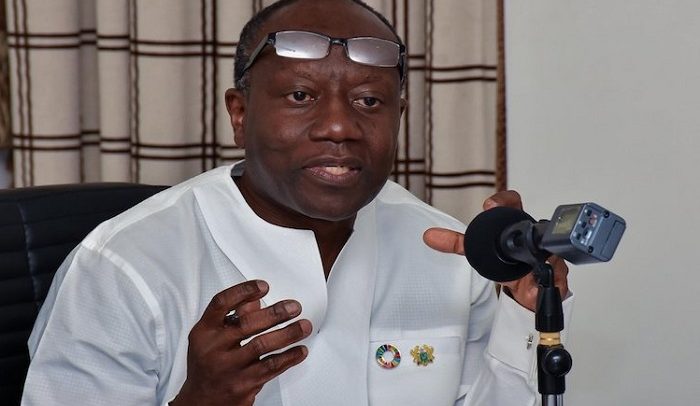Ken Ofori Atta
FINANCIAL ANALYST, Dr. Michael Dawson, has stated that the decision by the government to undertake the reforms in the financial sector was mooted by the International Monetary Fund (IMF).
According to him, the cleanup exercise was part of the IMF conditions for the country.
Responding to claims by ex-President John Dramani Mahama that the banking sector cleanup was the idea of the Finance Minister, Ken Ofori-Atta, he said the Fund warned the Bank of Ghana through several published reports to undertake some corrective measures during the Mahama/NDC administration, which they failed to do.
“You remember the asset quality review which was executed during the NDC era. The asset quality review gave a sense of the state of the banks. Former Finance Minister, Seth Tekper and Governors appointed by President Mahama are aware of the malfeasance which was discovered after the asset quality review of the banks,” Dr. Dawson pointed out.
He said several depositors, prior to the cleanup, were not getting access to their funds from some of the financial institutions.
“Some of the banks had also breached several banking regulations. Indeed, the financial system at the time was on the brink of total collapse,” he submitted.
According to him, the central bank explained that the cleanup was based on poor business practices and weak capital positions of the banks and financial institutions.
“I am aware that the liabilities of some of the banks were more than their assets,” Dr. Dawson intimated.
He added, “I will say that the resilience shown by the banking sector is due to the comprehensive financial sector reforms that took place before the Coronavirus pandemic.”
“You can imagine what would have happened if the banking sector reforms weren’t done, we would have woken up one day to see a collapse of the Ghanaian economy,” he argued.
The financial analyst said the cleanup had safeguarded the investments of 4.6 million depositors, averring, “There is confidence now in the sector. The exercise was crucial for stability and confidence in the financial sector.”
BY Daniel Bampoe


